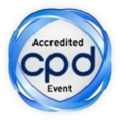
Biography
Biography: Pierre Lutgen
Abstract
Since 9 years the association IFBV-BELHERB from Luxembourg has established a working relationship with African and South American universities, in close cooperation with other European research institutions. Several of these partners have run clinical trials with Artemisia annua tea. In all these trials a therapeutical effect of 95% or higher was confirmed by the use over 7 days of whole leaf infusion, capsules or tablets. One of the surprising effects noticed in these trials was that that the artemisinin content had very little impact on the results. This lead us to make an analysis as complete as possible of all the constituents, organic and inorganic, in a large series of A. annua samples from different origins. A. annua from Luxembourg which had shown very promising antimalarial results, excellent bactericidal properties and a strong anti-inflammatory effect contained very little artemisinin but higher concentrations of certain essential oils. The effect of water soluble polysaccharides, amino acids, phytosterols and saponins has been neglected in the past because most of the A. annua extracts had been obtained with organic solvents. Several papers have shown that A. annua ingested as powdered leaves or in conjunction with fatty food significantly increases the artemisinin concentration in the blood. It is well documented in the literature that A. afra or sieberi which contain little or no artemisinin are extensively used as antimalarials. They contain at least 5 molecules of the same antimalarial efficacy as artemisinin. Recent double blind, randomized clinical trials with 1000 patients in RD Congo show that Artemisia afra is equivalent to A. annua and has a higher efficiency than ACTs. More recent research from the Al Quds University has shown that aqueous infusions of several Artemisia species strongly inhibit beta-hematin, like chloroquine did. But the most important finding in several of the clinical trials, especially in Kenya and Uganda, was that people who drink one or two cups of A. annua tea per week become immune against malaria. Similar strong prophylactic results have been obtained with ARTAVOL, a mixture of herbs developed by the Ministry of Health in Uganda, mixture containing Artemisia without artemisinin. Resistance in this case is not related to the killing power of one single molecule like artemisinin but to the polytherapy of the whole plant which not only eliminates the parasites but boosts the immune system, avoiding thus infection, reinfection or recrudescence.

